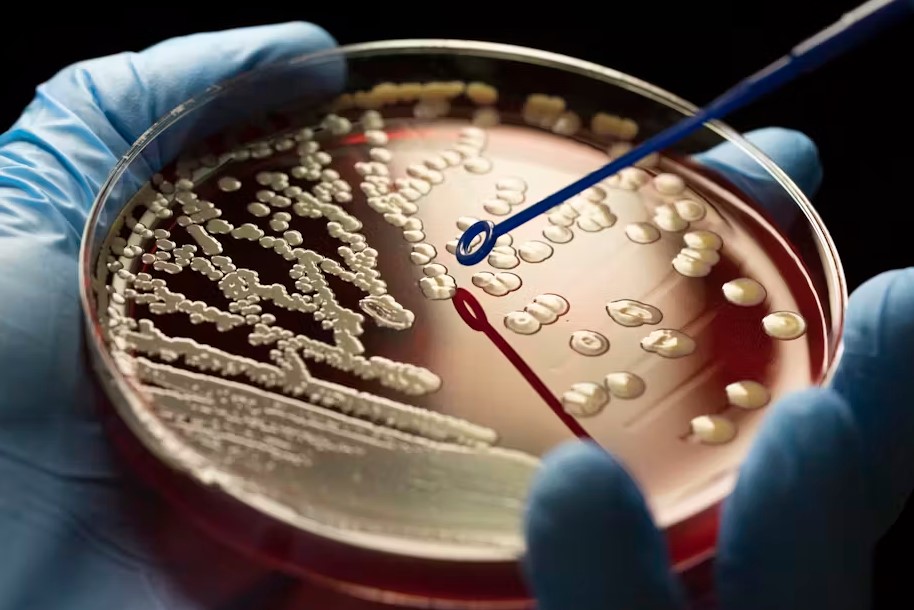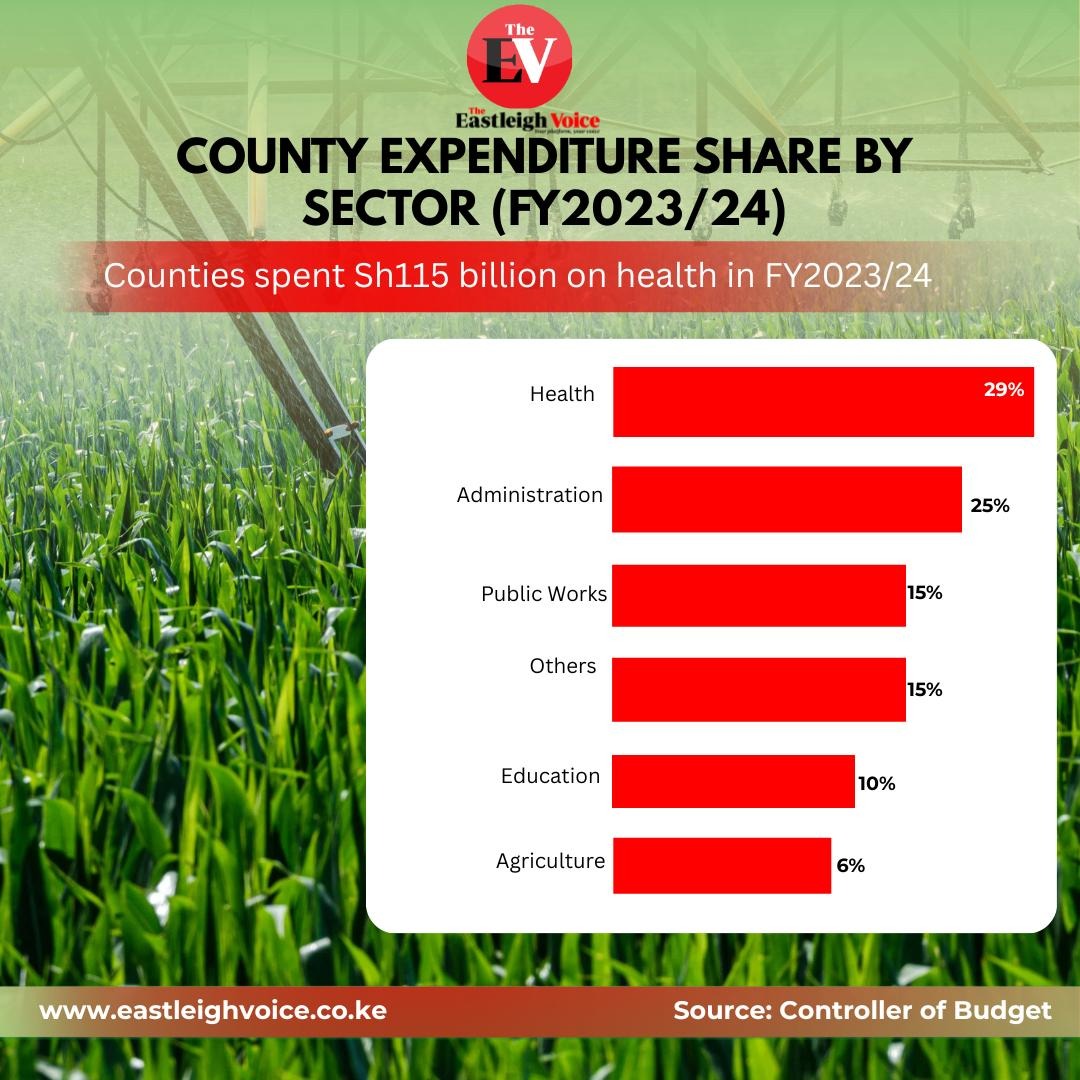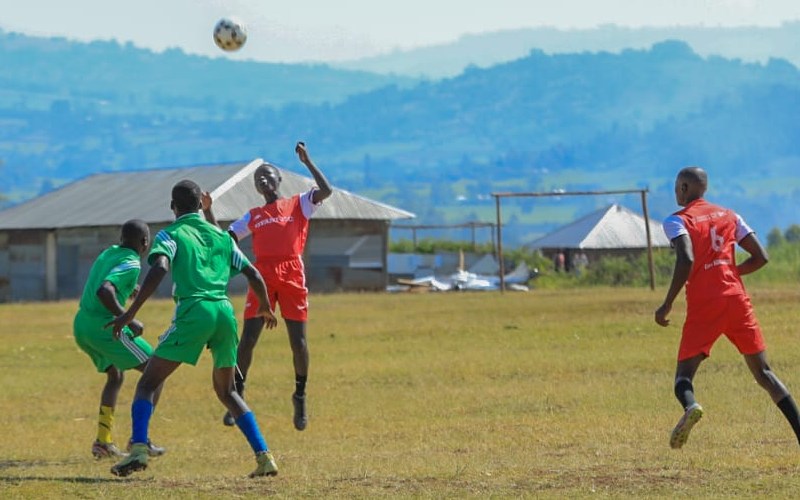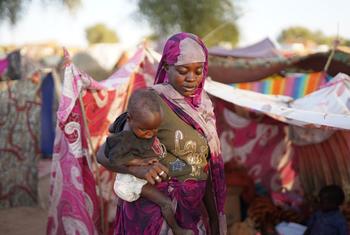How WASH Programmes can reduce AMR, curb antibiotic overuse

In Nairobi, waste management and the clearing of stagnant water, such as in the Nairobi River, remain a distant goal.
Resistant germs, their genes, and antimicrobial substances are widespread in wastewater and sludge from humans, animals, plants, and drug production.
The World Health Organisation (WHO) emphasises that improving water, sanitation, and hygiene (WASH), along with effective wastewater management across all sectors, is essential to tackling the spread of antimicrobial resistance (AMR).
More To Read
- WHO warns of rising antimicrobial resistance in fungal infections
- Ministry warns Kenyans on escalating antibiotic resistance
- WHO sounds alarm: Antibiotic resistance rising fast, puts millions at risk worldwide
- WHO raises alarm as antibiotic resistance threatens global health gains
- Kenya's public health at risk as falsified and substandard medicines accelerate antimicrobial resistance
- Clean hands, safe bites: Why everyday food habits matter more than you think
Proper sanitation and hygiene in homes, schools, and health facilities is a key step in preventing infections that would otherwise require antimicrobial treatment.
The lack of access to clean, treated water and poor sanitation are major contributors to the failure of antibiotics in combating diseases, particularly in Nairobi. Contaminated water accelerates the spread of infections, worsening Kenya's battle with antimicrobial resistance (AMR) and straining the healthcare system.
According to WHO, antibiotics are among the most overused drugs, and improving sanitation is key to addressing the growing threat of AMR, which continues to burden the healthcare system
In Nairobi, waste management and the clearing of stagnant water, such as in the Nairobi River, remain a distant goal. Many areas continue to struggle with piles of trash and stagnant water, which pose significant risks to the healthcare system by increasing the spread of antimicrobial resistance (AMR) and other diseases.
Slum areas, in particular, lack access to clean water and a hygienic environment. With a large portion of the population living in these conditions, many residents resort to buying over-the-counter drugs to address health challenges caused by their surroundings.
Poor sanitation contributes to the spread of diseases such as cholera, dysentery, typhoid, intestinal worm infections, and polio. People without proper sanitation are often forced to live in and consume water contaminated with waste, increasing their risk of recurring infections.
Many of these diseases are treated with antibiotics, but practices like sharing medication or not completing prescribed doses further increase vulnerability to infections, according to the World Health Organization (WHO).
Nairobi produces approximately 2,400 tons of solid waste daily, but only 38% is collected, and less than 10% is recycled. According to the National Environmental Management Authority (NEMA), waste management remains a significant challenge in the country. Areas such as Kibra, Kiambiu, Majengo, and Mathare often resort to dumping waste with the community and into the Nairobi River due to the lack of proper waste disposal systems.
A Lancet report published in 2024 estimates that over 39 million people globally could die from antibiotic-resistant infections by 2050. The report projects around two million deaths annually by 2050 due to drug-resistant infections.
In Kenya, AMR was directly responsible for 8,500 deaths and associated with 37,300 deaths in 2019. Without significant intervention, AMR could lead to 1.9 million direct deaths and 8.2 million indirect deaths annually by 2050. Economically, the impact is dire, with the World Bank projecting up to an additional US$1 trillion in healthcare costs by 2050 and annual GDP losses ranging from US$1 trillion to US$3.4 trillion by 2030.
The Global Research on Antimicrobial Resistance Project, the Institute for Health Metrics and Evaluation, and other institutions analyzed AMR-related deaths and illnesses from 1990 to 2021 across 22 pathogens, 84 pathogen-drug combinations, and 11 infection types in 204 countries and territories. Deaths "attributable" to AMR are directly caused by resistance, while those "associated" may have been worsened by it.
The study revealed that AMR-related deaths in children under five dropped by over 50% during this period, but deaths among adults aged 70 and older rose by more than 80%, a trend predicted to continue.
According to WHO, Water, Sanitation, and Hygiene (WASH) programs play a crucial role in combating antimicrobial resistance (AMR) by addressing the environmental factors that contribute to the spread of resistant pathogens.
How WASH programmes can help
Improving Infection Prevention and Control: WASH programs help reduce the spread of infections by ensuring access to clean water, proper sanitation, and hygiene. This lowers the need for antibiotics to treat preventable diseases, thus reducing the risk of developing antimicrobial resistance.
Preventing Contamination: Proper waste management and water treatment systems in WASH programs prevent the contamination of water sources with antimicrobial-resistant bacteria, which can spread through human and animal waste. This reduces the exposure to resistant pathogens in communities.
Promoting Safe Water and Hygiene Practices: Ensuring safe water and hygiene practices, such as handwashing with soap, reduces the incidence of infections, thus decreasing the overuse of antibiotics that are often used to treat preventable diseases.
Supporting Healthcare Facilities: WASH programs in healthcare facilities improve infection control and prevent cross-contamination, reducing the use of antibiotics to treat healthcare-associated infections, which often involve resistant bacteria.
Raising Awareness: WASH programmes can also include educational campaigns about proper antibiotic use, the dangers of misuse, and the importance of hygiene in preventing infections, helping to change behaviours that contribute to AMR.
By addressing the root causes of infections and providing a cleaner, healthier environment, WASH programmes can play a significant role in reducing the spread of antimicrobial resistance.
Optimise Use of Antimicrobials: Ensure antimicrobials are prescribed only when necessary and that patients complete their prescribed treatment courses. Reducing overuse and misuse of antibiotics in both humans and animals is essential.
Strengthen Regulations and Monitoring: Enhance surveillance of AMR to track patterns of resistance and use of antibiotics, along with enforcing regulations on the sale and use of antibiotics.
Develop New Antibiotics and Alternatives: Invest in research and development of new antibiotics, vaccines, and alternative therapies to combat resistant infections.
Global Cooperation: Foster international collaboration to address AMR, with countries working together to implement national action plans, share data, and harmonize policies and strategies.
During the National World Antimicrobial Awareness Week Symposium & Launch 2024 in Nairobi, experts shared alarming global statistics: bacterial AMR was directly responsible for 1.27 million deaths in 2019 and contributed to a total of 4.95 million deaths.
They warned that the misuse and overuse of antibiotics remain the leading causes of AMR, resulting in drug-resistant pathogens that are more difficult and costly to treat. Health professionals have cautioned Kenyans against purchasing antibiotics without a prescription as the country intensifies efforts to address the growing AMR threat.
The National Action Plan includes strategies to raise awareness and advocate nationwide, targeting everyone from households to healthcare providers and policymakers. Experts also launched a public education campaign in collaboration with other countries, aimed at changing attitudes and behaviours surrounding antibiotic use.
Top Stories Today











































